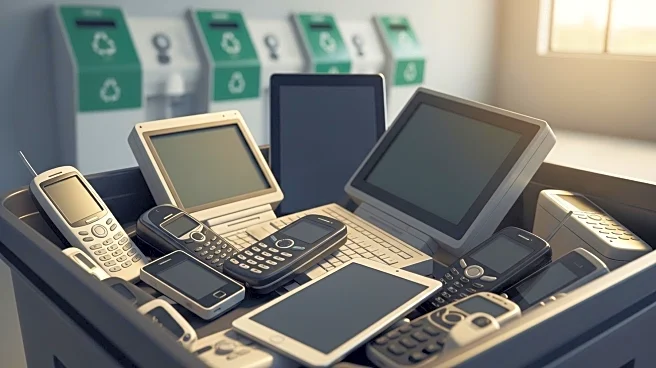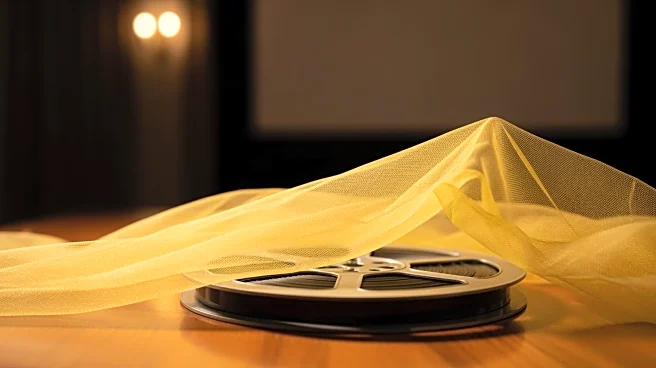What's Happening?
Retailers such as Best Buy, Staples, and Office Depot are providing free recycling services for old tech devices, including laptops and printers, to help consumers dispose of e-waste responsibly. Best Buy allows up to three household items per day to be recycled for free, with a higher limit for laptops. Staples offers free recycling for various tech items, even if they weren't purchased there. Office Depot provides a tech trade-in program where consumers might receive store gift cards in exchange for old devices. These initiatives aim to reduce the environmental impact of e-waste by keeping harmful components out of landfills.
Why It's Important?
The recycling programs offered by major retailers are crucial in addressing the growing issue of e-waste, which poses significant environmental hazards. By facilitating easy disposal of old electronics, these programs help prevent toxic materials from entering landfills, thus protecting ecosystems and human health. Consumers benefit from these services by clearing out unused tech clutter and potentially receiving incentives like gift cards. The initiatives also reflect a broader trend towards corporate responsibility and sustainability, encouraging other businesses to adopt similar practices.
What's Next?
As awareness of e-waste issues grows, more retailers may expand their recycling programs or introduce new incentives to encourage participation. Consumers are likely to see increased options for recycling old tech, including mail-in services and trade-in programs. Additionally, there may be further developments in state regulations regarding e-waste disposal, potentially leading to more standardized practices across the country. Retailers might also collaborate with environmental organizations to enhance their recycling efforts and educate the public on the importance of responsible e-waste management.
Beyond the Headlines
The push for e-waste recycling highlights ethical considerations regarding consumer electronics' lifecycle and the responsibility of manufacturers and retailers in managing their products' end-of-life. It raises questions about the sustainability of tech production and the need for more durable, repairable devices. The trend towards recycling could also influence cultural attitudes towards consumption, encouraging a shift from a disposable mindset to one that values longevity and environmental stewardship.










